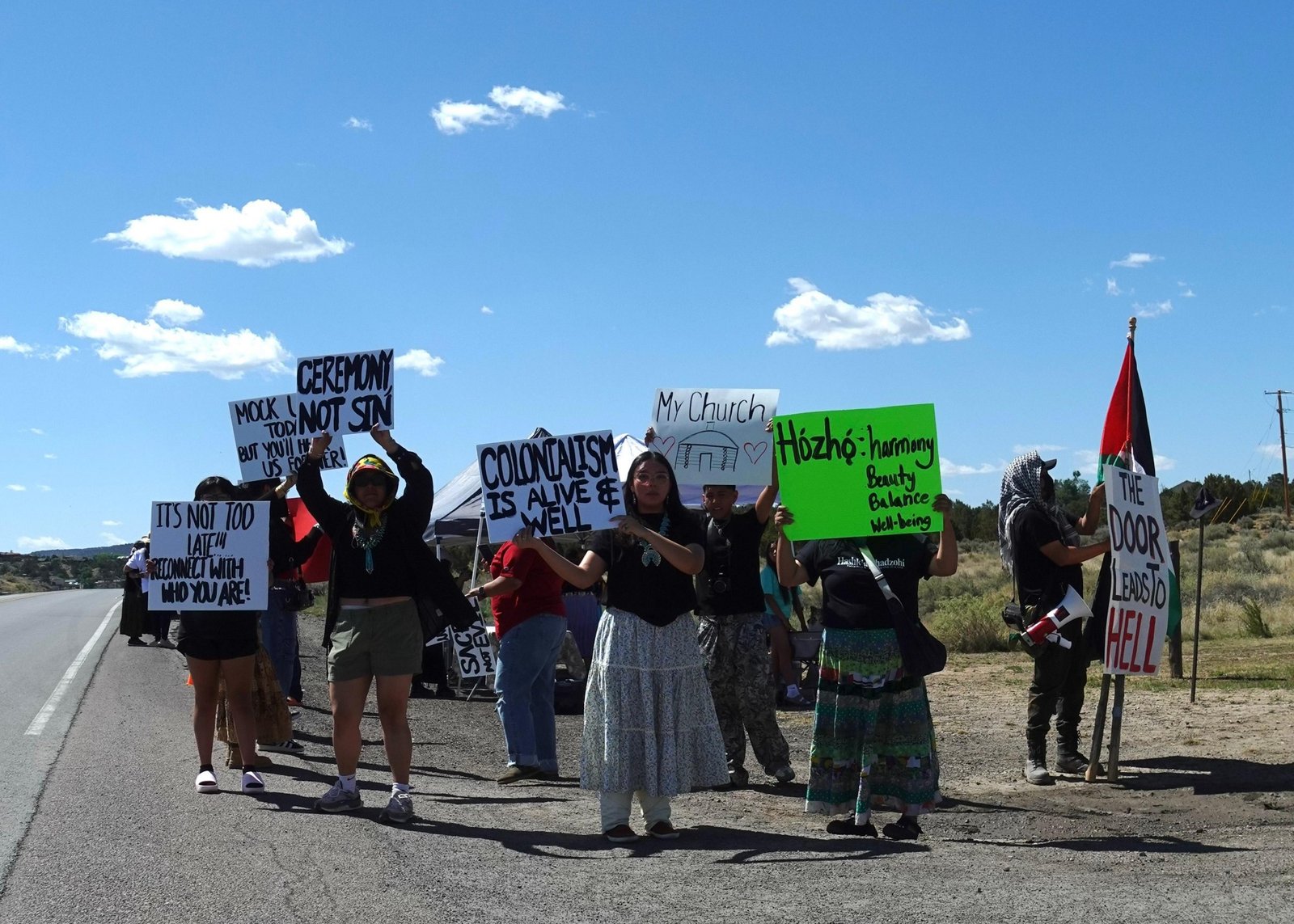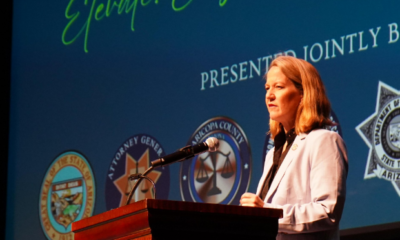Buu Nygren
Controversial Church Play Featuring Navajo Medicine Man in Hell Ignites Fury

When Louvannina Tsosie entered The Door Christian Fellowship Church in Gallup, N.M., she anticipated a familiar service with worship, music, and prayer. Instead, she encountered a stage performance that targeted Native beliefs, causing disappointment and anger.
“Unfortunately, it turned out to be a really disrespectful kind of play,” Tsosie remarked. The production included scenes that perpetuated harmful stereotypes about Indigenous people, notably depicting a Diné Hataałii, or medicine man, condemned to hell for practicing traditional Diné customs.
This portrayal sparked a wave of outrage among community members. Hataałii hold a revered place among the Diné, preserving crucial traditional ceremonies. Tsosie characterized the performance as “a direct attack on our beliefs and spirituality,” not merely a misunderstanding.
The Door is an offshoot of the Potter’s House Christian Fellowship Church, part of a global network based in Kentucky. The Gallup branch has operated since the early days of the Prescott congregation, focusing on evangelism and church planting.
After witnessing the offensive scenes, Tsosie began recording the production on her phone, later sharing clips on TikTok, where they gained significant traction, amassing over 230,000 views. The video highlighted the play’s disturbing elements, such as a Navajo man in traditional garb positioned next to a demon costume that mocked Diné ceremonies.
Scenes depicted violent interactions, including a confrontation leading to the medicine man’s murder and subsequent condemnation by a heavenly figure. Audience reactions included shock and dismay, particularly as many of the performers identified as Navajo themselves. “I guess it felt normal to them,” Tsosie lamented regarding the audience’s muted response.
Diné historian Dr. Jennifer Nez Denetdale condemned the play, noting that it exemplified a broader pattern of demeaning Indigenous culture. Her observations reflected a painful legacy of colonization and Christianization on the Navajo Nation, leading to a disconnect between cultural identities and religious practices.
In response to the play, Tsosie organized a peaceful protest outside the church in early June, demanding accountability and a public apology. Community elders and youth have rallied around her, expressing frustration over forced religious narratives that dismiss their cultural identities.
Navajo Nation Council Speaker Crystalyne Curley described the performance as “very gruesome and visual,” issuing a formal letter to The Door, expressing disappointment. Curley emphasized the significance of respecting diverse beliefs, highlighting that traditional practices hold sacred meaning for many Navajos.
The community’s call for dialogue remains unanswered. Frustration runs high as the Navajo Nation seeks acknowledgment and understanding from the church regarding its actions. “Freedom should never come at the expense of another person’s sacred beliefs,” Curley stated.
The City of Gallup, recognizing the tensions, released a statement reiterating its commitment to diversity while maintaining a neutral stance on matters of free expression. “Freedom of expression requires an acceptance of and willingness to bear insult and offense,” the city noted.








![Pickup truck fire near Smith-Enke Road and John Wayne Parkway. June 16, 2025. [Brian Petersheim Jr.]](https://arizonanews.org/wp-content/uploads/2025/06/Pickup-Truck-Ignites-in-Fiery-Blaze-at-Cobblestone-Fiesta-400x240.jpeg)
![Pickup truck fire near Smith-Enke Road and John Wayne Parkway. June 16, 2025. [Brian Petersheim Jr.]](https://arizonanews.org/wp-content/uploads/2025/06/Pickup-Truck-Ignites-in-Fiery-Blaze-at-Cobblestone-Fiesta-80x80.jpeg)


![Katrina Woods stands next to her attorney, Ron Reyna, during her arraignment at Pinal County Superior Court on May 9,. 2025. Top: Snippets from court records show what Woods pleaded to in her county case. [David Iversen/Pinal County Superior Court/graphic]](https://arizonanews.org/wp-content/uploads/2025/06/FEMA-Fraud-Suspect-Katrina-Woods-Shocks-with-Plea-Deal-Now-80x80.jpg)





